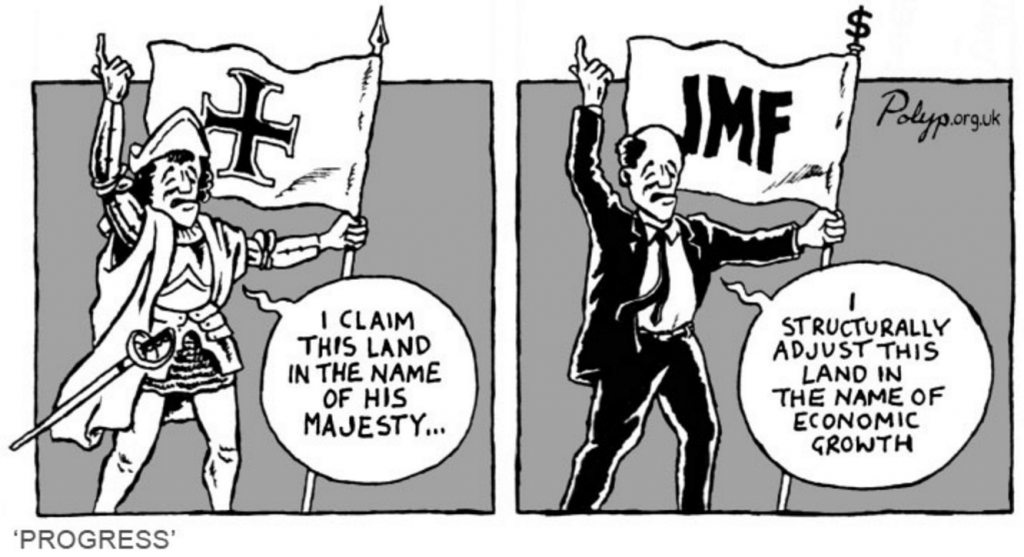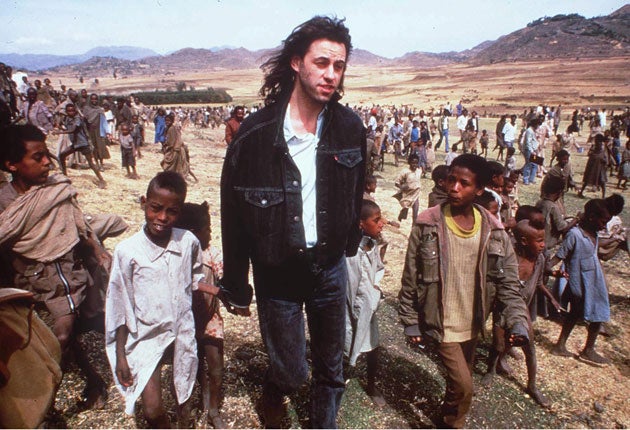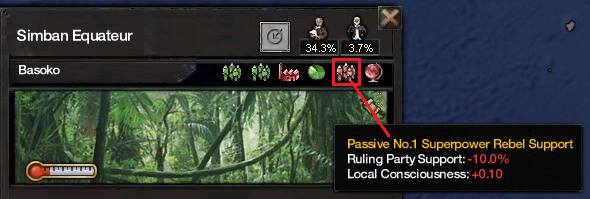This third article in a series of deep dives into alternative historical depictions of Africa and colonialism in video games focuses on post-colonialism. The end of formal colonialism marked the beginning of neocolonialism. A Victoria 2 mod set in the Cold War simulates this with a system of economic spheres of influence. How does it affect Africa?
Introduction
The famous Kikuyu anti-colonial writer and academic Ngũgĩ wa Thiong’o outlines in his article The Writer in a Neo-colonial State three “ages” that Africa experienced; the age of colonialism, the age of independence and the age of neo-colonialism. In broad terms African countries went from a long period of European rule to a brief period of self-rule only to fall back into the economic and political grasp of Europe through subversion by multilateral (financial) institutions. This is what we now call neo-colonialism; the practice of using economics, globalisation, cultural imperialism and conditional aid to influence a country instead of the previous colonial methods of direct military control (imperialism) or indirect political control (hegemony). An example of neocolonialism can be found in the various organisations set up by the Belgian government as discussed in the previous article on Katanga, where its copper mines fell into the hands of Belgian and other western investors.
For this article, the primary factor of interest is economic neo-colonialism. Proponents of “dependency theory”, a framework originating from UN economics in the early 1950s, claim that the extraction of human and resource capital from peripheral countries to an economic centre in the west is what keeps these countries poor and dependent indefinitely. The conventional belief in capitalist theory that economic dependence is a transitional phase is overruled by dependency theory as the peripheral country never gets the chance to become an equal competitor on the free market. In Africa the prevalence of international aid contributes to the unequal relationship between them and the west, as economic growth is stifled instead of stimulated and the funding itself often ends up anywhere but at its intended destination.
Many of these factors lend themselves well to gamification as mechanics in world history games such as those by Paradox Interactive. An older game of theirs, Victoria II, even has a completely simulated world economy as well as an economic influence system through “spheres of influence”. These will tie a subject nation’s economy to that of the sphere master, who gets to dictate their tariffs and enjoys first grade access to its export market. Victoria II normally only simulates the 19th century however, with the base game going from 1836 to 1936. Thankfully the Victoria II modding scene has produced a comprehensive Cold War Enhancement mod that boasts an entirely new scenario, ranging from 1945 all the way up to 2099 (!). “CWE” features ideological blocs, dynamic international institutions and decolonisation chains to accurately simulate the Cold War and Post-Cold War world. Victoria II‘s economic simulation model is unique to this Paradox Interactive title as other games moved towards more and more abstraction of concepts to make the gameplay more accessible, so CWE is the best of both worlds; a modernised experience built on a robust foundation.
The Road to Neocolonialism in Brief
To summarise the complicated process of Africa’s transition from colonialism to independence and back to neocolonialism, it is prudent to look again at wa Thiong’o’s observations on the 1960’s and 70’s. The optimism that followed Africa’s first steps towards genuine independence has been all but burnt out by a series of coups across the continent and the events of the Congo Crisis unfolding. European financial interests, but also increasingly more American businessmen, found the newly empowered African dictators much more pliable for their plans to reintegrate African economies into the global capitalist system. A number of the genuine independence leaders of the past had made efforts to disentangle their countries from international finance, such as Julius Nyere with his Ujamaa system. By the 1970s institutions such as the International Monetary Fund and the World Bank, both American-led, had worked in tandem with authoritarian regimes in Africa to engender a nearly complete economic dependence on western capital. Capital that was used by the authoritarian regimes to repress domestic unrest, dependence abroad; repression at home became the national norm.
American military bases increasingly began to surround Africa. The Congo Crisis had already seen massive deployment of western coalition forces to intervene in African affairs and in the 1970s special Rapid Deployment Forces that could be used for power projection all over Africa were first seen in action. Besides America, France’s Françafrique project can be seen as another representative example of neocolonialism. As French West- and Equatorial Africa gained their independence Charles de Gaulle’s main adviser on African affairs Jacques Foccart envisioned a political and economic union between France and its former African empire that allowed for a continued military presence as well. A number of French-African leaders, such as Félix Houphouët-Boigny of Ivory Coast and Gnassingbé Eyadéma of Togo were so sympathetic to this idea that they acted as proxies for France proper for decades during the Cold War and contributed greatly to the cementing of this unequal relationship. Neocolonialism characterises itself through a system of indirect control and rule by proxy, as the Françafrique project signifies. Western governments, transnational institutions and corporations make investment into African countries to tie them to the West. Sometimes there is not even a mutual exchange of goods going on, as unilateral aid dependency has affected Africa far more than any other region in the world. The western money being poured into underdeveloped African countries works in tandem with the authoritarian structures in many African countries and rarely gets used to improve living standards or combat poverty. Instead, corruption and mismanagement of funds have caused poverty rates to increase dramatically, especially in the 1980s when there was hardly any criticism of this practice.
A particularly notorious example is the ‘Band Aid’ fundraiser hosted by Bob Geldof in 1984. Their song ‘Do they know it’s Christmas’ raised millions of dollars of charity money that was then handed to Mengistu Haile Mariam’s communist regime in Ethiopia, no questions asked. Haile Mariam used this money to hasten his program of forced resettlement which led to the deaths of hundreds of thousands of people.
Cold War Extended’s Depiction of Neocolonialism
In Victoria II’s Cold War Extended mod the three-step transition from colonialism to independence to neocolonialism is simulated through a number of different game mechanics. At the beginning of the game most of Africa is under direct European control and hardly any African nations exist on the map.
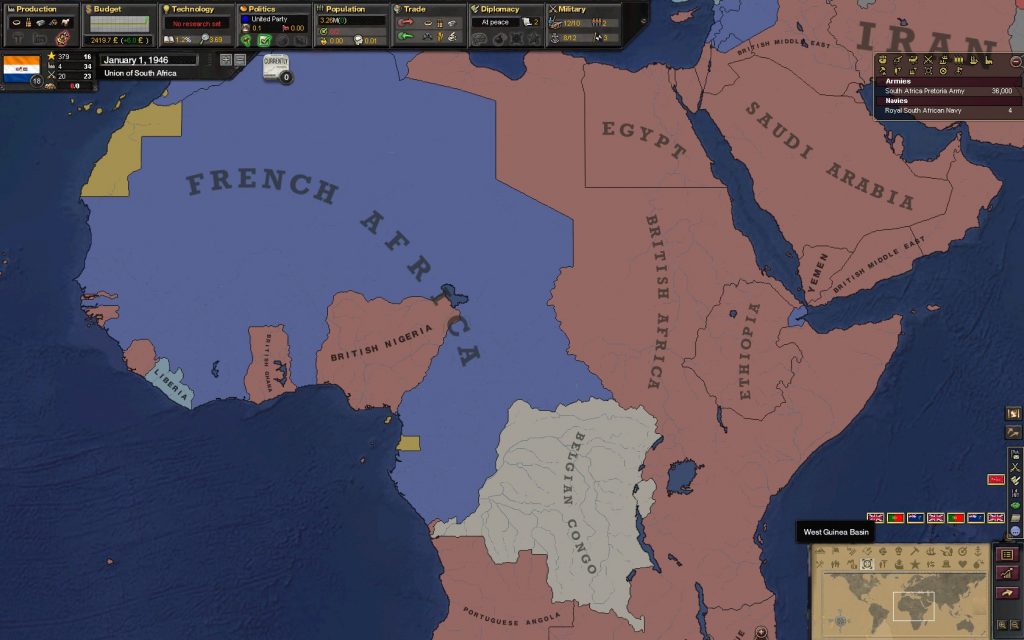
By the 1990s the neocolonial power structures have truly cemented themselves. The Françafrique, while appearing to be a collection of independent African nations, is still firmly in France’s sphere of influence. In game terms this means that their economies are tied to the French bloc and that they cannot start wars with other members of their sphere. A player will notice a sharp decrease in revenue (“Budget” tab, top left) when part of a sphere of influence, as goods are bought and sold with the sphere master first instead of being offered on the international market.
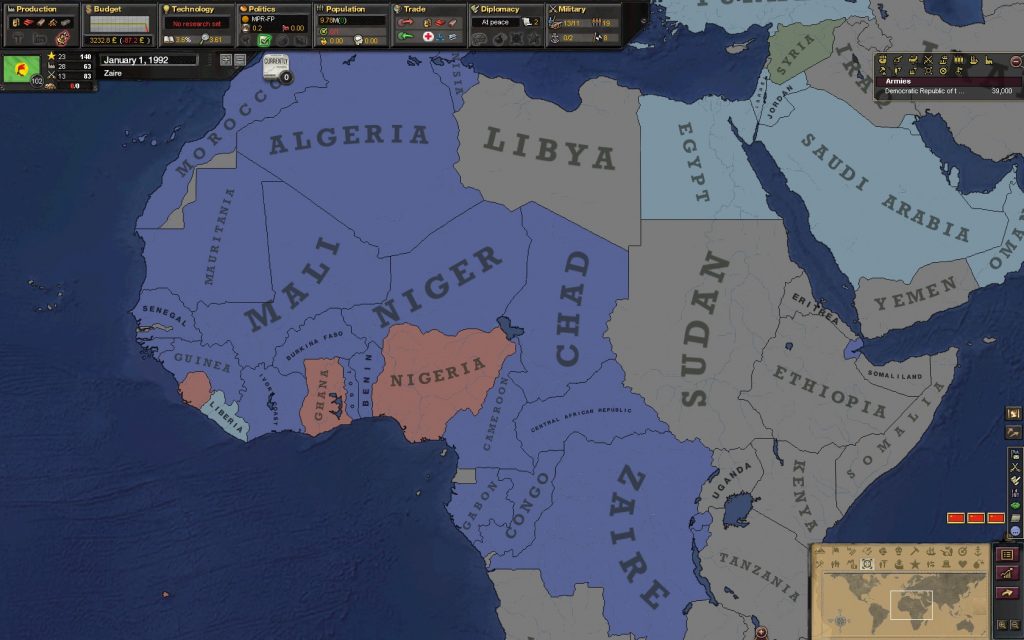
Spheres of influence are also used to simulate proxy wars. In CWE’s Congo Crisis the different factions are supported by different global superpowers who will influence them to gain access to Congolese resources upon the crisis’ conclusion. Typically the United States supports Katanga to secure its copper mines and the Soviet Union supports the “Simba” rebellion in the east as it is led by communists. Communist countries in Africa will drift into the Soviet bloc while America supports the containment of communism, either through proxy leaders or by directly supporting Europeans.
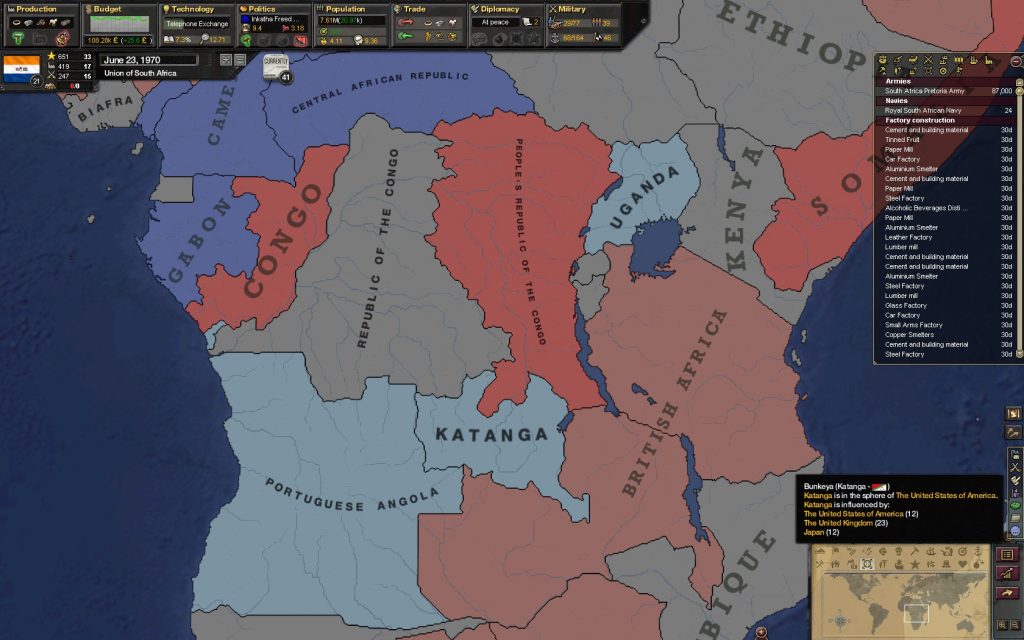
CWE’s sphere of influence system differs from the base game’s in that every nation besides the G8 periodically gets a decision to align with the number one or number two world power on their own accord. This increases the influence of the current superpowers by a small margin and can lead to whole sections of the globe drifting into a power bloc over time. In the base game, great powers have to manually set targets to influence, so CWE adds a degree of automation to the process that also lets minor nations have a bit of agency. It can be beneficial to an African country to escape the sphere of influence of their European coloniser by heavily investing in attracting one of the two superpowers, but this often manifests itself as trading one overlord for another.
Blocs and Aid
Joining the American or Soviet bloc also means gaining access to national modifiers set by the US or USSR player that dictate the amount of economic and military aid the bloc members get. Members of the Soviet bloc can join the Council for Mutual Economic Assistance (“Comecon”), a multilateral institution for the allocation of aid among socialist countries of the world. A number of communist countries in Africa such as Ethiopia, Angola and Mozambique were observers in Comecon in real life and received technical assistance from Soviet experts. Comecon’s main goal when providing aid to Africa was to allow for import substitution to disentangle communist economies from the global market.
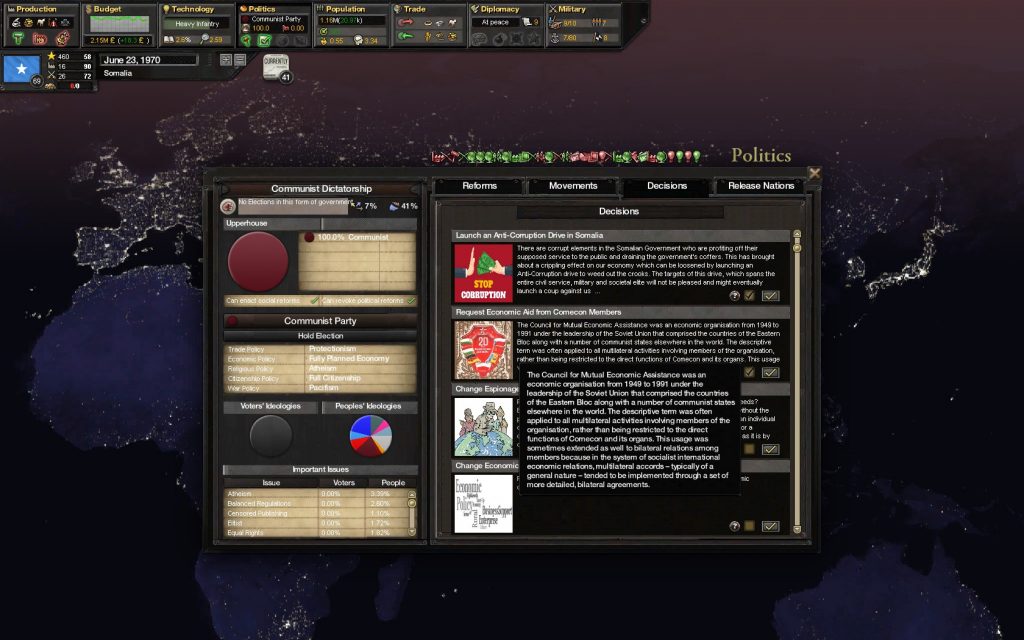
Doing so will inevitably tie African economies to the Soviet market however, which comes with its own set of developing countries from the Warsaw Pact interested in gaining access to African resources. The Soviet AI can perform the same kind of investment actions as the American AI or any other Great Power that may arise in their stead so direct industrial aid from the USSR can lead to a lower industry score for an African country if their factories are increasingly foreign-owned. Government types that allow for the representation of parties from across the political spectrum, such as constitutional monarchies and republics, can also be forced to install a communist dictatorship if they are in the Soviet sphere.
Maintaining genuine independence as an African nation in CWE and frankly in the real life Cold War in general is a difficult task. It may not even be in the best interests of the state to remain non-aligned, as this often means the old colonial power can come creeping back in through economic and political influence. The global superpowers actively compete for African resources by supporting rebel movements sympathetic to their ideology, manipulating economies through international financial institutions and sometimes openly backing a coup against the state. The sphere of influence system gamifies the real political consequences of neocolonialism as it happened from the 1960s onwards up to today; a breakdown of democracy to be replaced with authoritarianism and power brokering with foreign capital. Part of this must be attributed to the deliberate western intent to maintain an economic hold on Africa as per “dependency theory” and its stipulation of the center-periphery dynamic of capitalism, but what Victoria II’s game mechanics illustrate so well is that market control is but one part of the great nations’ regime of power projection, where Africa can only really compete on a level playing field if a great power of their own rises from its ranks. The CWE mod not only offers an unparralleled simulation of the Cold War but also allows for the player input and alternative historical deviations to let Africa rise as its own power bloc. Where of its gamifications of history are accurate there is no railroaded path that the world is forced into, so with each incremental change in history the outcome can shift dramatically in different world powers’ favour. Consequently decolonisation and neocolonialism can go very differently depending on what actions the player takes or what has happened over the course of the game.
African countries’ population continues to boom and this process is simulated in CWE as well, which combined with increased industrialisation and larger power projection can lead to states such as Nigeria becoming one of the eight great powers some time after the 2020s. This allows them to have their own sphere of influence and project power in Africa, preventing Europeans and other western powers from doing so. Regional unions, although sometimes born from colonialism, have the potential to become powerful as well.
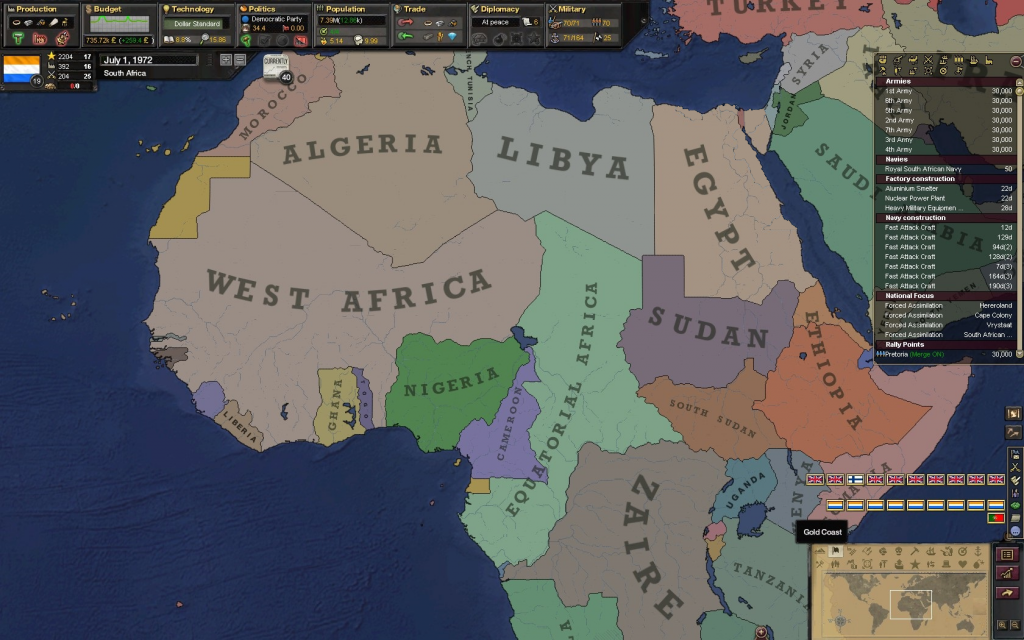
In a recent playthrough of mine the Françafrique bloc was consolidated into two megastates, one for West Africa and another for Equatorial Africa. They eventually managed to escape France’s sphere of influence and became strong regional powers in the 1990s. If Africa can come together in their own power bloc like these then they may yet offer a stronger collective resistance against neocolonialism.
The Cold War Enhancement mod offers a complete experience of the long history of the Cold War with room for alternative historical forks in the road. The processes of decolonisation and neocolonialism are in the hands of both the player and the AI controlling the world powers, so while African states will always have to balance their interests against those of the power blocs seeking to exploit their resources CWE at least offers Africa the potential alternative of forming one of their own.
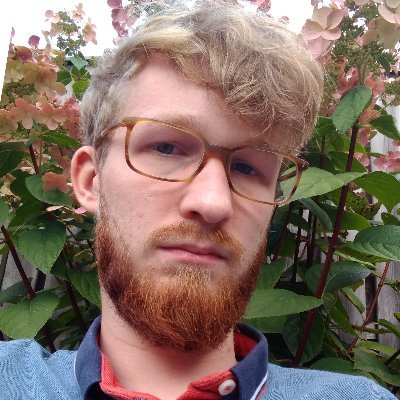
Jochem ‘Guthixian’ Scheelings is an MA student in African Studies at the University of Leiden and Intern at VALUE. He is aiming to specialise on crossing the boundaries between gaming and academia in his own field of expertise and maintains a broad interest in all depictions of Africa in video games. His speciality is immersive historical simulators by Paradox Interactive. Tweet him at @Guthixian_VALUE

